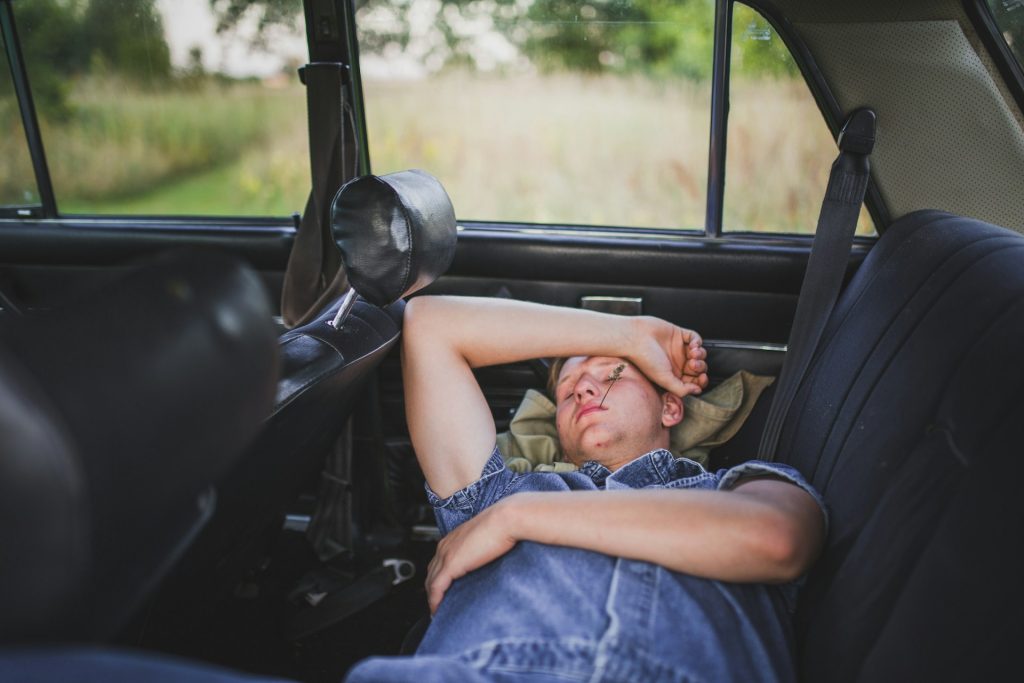
Image Source: unsplash.com
In an era where housing costs continue to skyrocket and the desire for freedom grows stronger, a surprising lifestyle choice is gaining popularity: voluntary car living. Far from the stereotypical image of homelessness, a growing community of individuals is deliberately choosing their vehicles as primary residences—and finding unexpected joy in the process. This intentional downsizing represents a fascinating intersection of financial strategy, minimalism, and the human desire for autonomy that’s reshaping how we think about “home.”
1. Financial Freedom Through Radical Housing Alternatives
The average American spends between 30 and 50% of their income on housing, creating a financial burden that limits other life choices. Living in a vehicle can reduce monthly expenses dramatically, often cutting living costs by 70% or more when compared to renting in major metropolitan areas. This radical reduction in overhead allows car dwellers to accelerate debt payoff, build savings accounts that would otherwise be impossible, or fund experiences rather than square footage. The financial mathematics makes compelling sense: eliminating rent, utilities, property taxes, and maintenance costs creates a pathway to financial independence that traditional housing rarely permits. The money saved can be redirected toward investments, education, travel, or simply building a substantial emergency fund that provides peace of mind.
2. The Minimalism Movement Meets Mobile Living
The tiny house movement demonstrated that Americans are increasingly questioning whether bigger truly means better when it comes to living spaces. Car living represents the ultimate expression of minimalism, forcing practitioners to evaluate every possession through the lens of necessity and utility. This ruthless prioritization often leads to psychological benefits that extend far beyond the practical aspects of the organization. Many car dwellers report feeling mentally lighter after shedding the burden of excessive possessions that previously demanded attention, maintenance, and emotional energy. The constraint of limited space creates a natural boundary against consumerism and the accumulation of items that rarely justify their cost in terms of actual life enhancement.
3. Technology Has Made Vehicle Living More Comfortable Than Ever
Modern technology has transformed what was once a Spartan existence into something surprisingly comfortable and connected. Solar panels, portable power stations, and efficient appliances designed for RVs can now be adapted for car living, providing electricity for essential devices and small comforts. Mobile internet options have eliminated the connectivity barriers that would have made remote work impossible just a decade ago. Smartphone apps help car dwellers locate safe overnight parking, public facilities, and community resources that make daily logistics manageable. Compact camping equipment has evolved to provide comfortable sleeping arrangements in limited spaces, with specialized mattresses and bedding systems designed specifically for vehicle living. The technological infrastructure supporting this lifestyle continues to improve, making what was once an extreme choice increasingly accessible to average people.
4. The Psychological Benefits of Location Independence
The freedom to change one’s surroundings at will represents a powerful psychological advantage that many car dwellers cite as their primary motivation. This mobility allows people to follow optimal weather patterns, avoiding extreme temperatures that might otherwise require expensive heating or cooling. The ability to relocate based on employment opportunities creates economic resilience during uncertain times, allowing car dwellers to go where the work is rather than being tied to a single job market. Many report that the constant exposure to new environments stimulates creativity and prevents the stagnation that can occur in static living situations. Research suggests that novel experiences contribute significantly to happiness, making the variety inherent in mobile living a potential well-being booster. The sense of agency that comes from choosing one’s location daily represents a form of freedom that conventional housing rarely provides.
5. Building Community Beyond Traditional Neighborhoods
Contrary to assumptions about isolation, many car dwellers report forming tight-knit communities with fellow mobile residents. These connections often transcend the superficial relationships that characterize many traditional neighborhoods, where proximity rather than shared values determines one’s social circle. Online forums and meetup groups specifically for vehicle dwellers facilitate in-person gatherings that strengthen these bonds and provide practical support networks. Many car dwellers participate in intentional communities that gather seasonally in different locations, creating temporary villages of like-minded individuals. The shared experience of unconventional living creates an immediate connection that often bypasses the small talk and social barriers of conventional relationships. These communities frequently develop resource-sharing systems that enhance everyone’s quality of life while reducing individual consumption.
Redefining Success on Your Own Terms
The rise of voluntary car living reflects a broader cultural shift toward personalized definitions of success and fulfillment. By rejecting the conventional housing ladder, these individuals demonstrate that prosperity might be better measured in freedom, experiences, and financial security rather than square footage and possessions. The courage to step outside societal expectations often yields unexpected rewards—not just in bank account balances but in life satisfaction and personal growth. The car dwellers who find joy in this lifestyle aren’t simply making do with less; they’re actively choosing a different path that prioritizes what matters most to them individually. Their example challenges all of us to question whether our housing choices truly align with our values and goals or if we’ve simply followed a prescribed path without examination.
Have you ever considered dramatically downsizing your living situation to gain more freedom? What would be your biggest challenge if you were to try living with significantly fewer possessions and space?
Read More